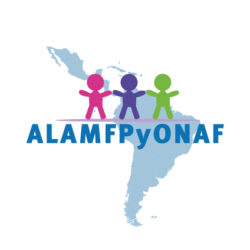Debunking Myths About Oops: Separating Fact from Fiction
The term "oops" has become a ubiquitous part of modern language, often used to express surprise, shock, or regret in response to an unexpected event or situation. However, over time, misconceptions and myths have developed around the concept of oops. In this article, we’ll delve into the truth behind some common myths surrounding oops, setting the record straight on what it means to say "oops" versus other phrases.
Myth #1: Oops is a modern oops-play.com invention
One might assume that the term "oops" is a relatively recent development in language, emerging as a result of changing societal norms or cultural influences. However, this notion couldn’t be further from the truth. The word "oops" has its roots in ancient languages, dating back to Old English and Germanic dialects. In fact, the phrase "oops" is derived from the Middle English exclamation "oepse," which was used to express surprise or disappointment.
The Evolution of Oops
Over time, the term "oops" evolved to encompass a range of emotions, from embarrassment to shock. Its widespread adoption in modern language can be attributed to the rise of popular culture, particularly in film and television. The phrase gained significant traction in the mid-20th century, with iconic characters like Charlie Brown from the Peanuts comic strip frequently using "oops" to express frustration or disappointment.
Myth #2: Oops is a nonverbal expression
Some argue that saying "oops" is equivalent to making a nonverbal expression of surprise, such as a gasp or a raised eyebrow. However, this assumption neglects the fact that "oops" is, in itself, an audible utterance. When we say "oops," we’re not simply conveying a feeling through body language; we’re actively using words to communicate our emotions.
The Power of Verbal Communication
Verbal communication plays a significant role in shaping how we express ourselves and interact with others. Saying "oops" is a deliberate choice, often used to diffuse tension or acknowledge an unexpected situation. By vocalizing our emotions through the use of language, we create a shared understanding between individuals, facilitating effective communication.
Myth #3: Oops is only for minor mistakes
Another common misconception surrounding oops is that it’s exclusively reserved for minor slip-ups or embarrassing moments. While it’s true that "oops" can be used to express regret over small mishaps, its applications extend far beyond mere trivialities. When we say "oops," we’re acknowledging a misstep, whether large or small, and opening ourselves up to potential learning opportunities.
The Scope of Oops
Oops isn’t limited to minor mistakes; it’s also used in more significant contexts to express regret or disappointment over larger-scale failures or setbacks. For instance, an employee might say "oops" after accidentally deleting crucial data, while a manager could use the phrase to acknowledge a company-wide blunder.
Myth #4: Oops is an Americanism
Many assume that the term "oops" is peculiarly American in origin and usage. However, this assumption neglects the fact that similar expressions are used across various cultures and languages. In fact, the concept of expressing surprise or regret through a single word or phrase is ubiquitous, transcending geographical boundaries.
Global Expressions of Surprise
From the German "ach" to the French "oh la la," people from diverse linguistic backgrounds have developed unique ways to express surprise or disappointment. The universality of these expressions highlights the shared human experience and our inherent need for effective communication.
Myth #5: Oops is a childish phrase
Some view saying "oops" as an immature expression, characteristic of children’s language or juvenile behavior. However, this perspective oversimplifies the complexities of language development and usage. When we say "oops," we’re not necessarily being childish; rather, we’re acknowledging our fallibility and expressing vulnerability in the face of uncertainty.
The Nuances of Language
Language is a dynamic entity, constantly evolving to meet the needs of its users. Saying "oops" isn’t inherently immature or childish; it’s simply a way of communicating a specific set of emotions, one that transcends age and cultural boundaries.
In conclusion, by examining the facts behind common myths surrounding oops, we can gain a deeper understanding of this versatile term and its significance in modern language. From its ancient roots to its widespread adoption across cultures, "oops" serves as a powerful tool for communication, allowing us to express a range of emotions while fostering empathy and shared understanding between individuals.
As we continue to navigate the complexities of human interaction, it’s essential to recognize the value of nuanced communication and the many expressions available to us. By embracing the multifaceted nature of language, we can break down barriers and foster a more inclusive environment for self-expression and growth.

